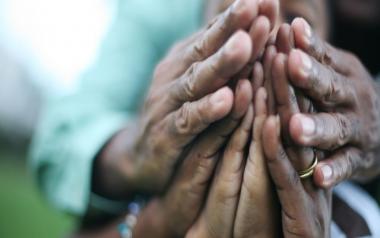With time as we grow older, our parents age too. As young, we were completely dependent on our parents and there is no wrong if they expect us to take care of them in their old age. This is how Indian society has been functioning since time immemorial.
Traditionally, parents live with their children until their very end. They pass their last days happily, playing with their grandchildren, and being served lovingly by their children whom they had raised with great effort and pain. In modern times, however, many children do not want to take care of their old parents. Different people have varying relationships with their parents or siblings, and different feelings about taking care of them. Keeping aside our personal histories, we have an ethical responsibility to make sure our parents and siblings are safe, secure and getting the attention they need.
Parents play the biggest role in our development whether it is mental, physical, social, financial or career development. They guide and support us in every step of our life. Sometimes they even slay their desires and happiness to make their children happy and successful. The least we can do for them is to love and respect their feelings. Without their endless sacrifices during our early years, we would not be capable of what we are today. We need to take care of our parents because they deserve to be cared for. They have the right to expect something from their children in their old age.
Taking care of our parents is the minimum we can do to honour them as it is a moral obligation of a well-raised person. Many people are so busy with day-to-day schedules that taking time off work to be with their aging parents is difficult. Even if we cannot manage enough time to be with them, the least we can do is to support them by contributing to their care. The basic morality we need to fulfill is to take care of our parents, be it by being physically available whenever they need us or by providing financial support so they can lead a decent life.
We should lead by example. We will be getting old too and we must set a good example for our children to see, learn and inculcate the good value in them. Taking care of our dependent parents and siblings is a responsibility in terms of our life cycle which is similar. The grace we give is the grace we live.
As propagated in Sikhism, by the Guru's Maryada, tradition, the Seva (service) of our parents have been given high recognition and status. If we do not serve our parents and do their seva, selfless service, then the seva we do at the Gurdwara is not accepted, according to Guru Ji.
It is mentioned in the Holy Quran Chapter 17 Surah Bani Israel verses 23-24:
Your Lord has enjoined the following: You should not worship anyone but Him Alone! Treat your parents with great kindness; if either or both of them attain old age, do not even say ‘uff’ to them; nor rebuke them; but speak to them kind words. Treat them with humility and tenderness and pray, “O our Lord, be merciful to them, just as they brought me up with kindness and affection in my childhood.”
In the Holy Bible, probably the first indication is that we should look after our parents come in the Ten Commandments – “Honour your father and mother, so that your days may belong in the land the LORD your God is giving you.” (Exodus 20:12).
Hinduism also propagates to “serve” parents, especially in old age. Buddhism teaches that children should respect aging parents and that one form of respect is listening to their advice.
All holy scriptures of all religions have a special mention about caring for parents which are considered as the utmost duty of a child. Service to parents is described as the best service in almost all religions across the world. Religious texts equate Parents with God. It is believed that parents who give birth and rear children face agony and therefore the children must keep them happy and content through care and services to attain truth and success in life.
In 2007, India enacted The Maintenance and Welfare of Parents and Senior Citizens Act, intending to ensure need-based maintenance for parents and senior citizens and their welfare. This Act makes it a legal obligation for children and heirs to provide maintenance to senior citizens and parents, by monthly allowance. This Act also provides a simple, speedy and inexpensive mechanism for the protection of life and property of the older persons.
Our society lay high importance in providing care and protection for parents and siblings. Our elders are forced to live alone and are exposed to various problems such as lack of physical, social, emotional and financial support. To overcome such difficulties, the Government of Assam has introduced the PRANAM Act. The main aim of this Act is to cultivate a sense of responsibility and understanding amongst the working population in Assam. Our dependent parents or differently-abled siblings may need assistance in managing their finances and we may need to take a more active role in assisting them so they are financially secured. Any dependent parent/ divyang sibling residing in Assam may approach the Designated Authority under the PRANAM Commission for apportionment of the salary of their son/ daughter/ brother/sister if they do not have the means to lead a decent life. The Designated Authority after verifying the eligibility of the case will ensure that they receive righteousness as per the provisions of the PRANAM Act.
